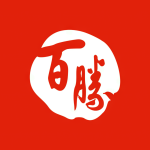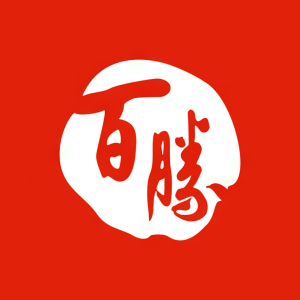Welcome to our dedicated page for Yum China SEC filings (Ticker: YUMC), a comprehensive resource for investors and traders seeking official regulatory documents including 10-K annual reports, 10-Q quarterly earnings, 8-K material events, and insider trading forms.
The Yum China Holdings, Inc. (YUMC) SEC filings page on Stock Titan provides access to the company’s regulatory disclosures filed with the U.S. Securities and Exchange Commission. As a New York Stock Exchange registrant, Yum China submits current reports on Form 8-K and related amendments, along with other required filings, to inform investors about material events, financial results and governance changes.
Recent Form 8-K filings referenced in the company’s disclosures include announcements of unaudited quarterly financial results, highlights from an investor day in Shenzhen, and details of share repurchase authorizations and repurchase agreements. These filings often attach press releases as exhibits, giving investors direct access to the company’s descriptions of system sales growth, same-store performance, store openings, margins, digital and delivery metrics, and capital return plans.
Other 8-K filings cover Regulation FD disclosures, such as interim reports issued to comply with Hong Kong Stock Exchange rules, and notices of additional share repurchase plans. Governance-related 8-K and 8-K/A filings report board changes, including the appointment of new directors, committee assignments and a director’s decision not to stand for re-election, along with statements that such decisions were not due to disagreements with the company.
Through these filings, investors can see how Yum China communicates its multi-year capital return targets, expansions of share repurchase authorization, and the timing of investor events. The filings also confirm the company’s dual listing, with its common stock registered under Section 12(b) of the Exchange Act and traded on the New York Stock Exchange under the symbol YUMC and on The Stock Exchange of Hong Kong Limited under stock code 9987.
On Stock Titan, users can review Yum China’s SEC filings as they are made available from EDGAR and use AI-powered summaries to interpret the key points in each document. This can help readers quickly understand the significance of earnings announcements, capital return disclosures, investor day materials, and board or governance updates contained in Yum China’s regulatory reports.
Yum China Holdings, Inc. executive Lu Xueling, the company’s Controller and PAO, reported routine equity transactions in company stock. On January 14, 2026, Lu acquired 2,021 shares of common stock at $0.00 per share, representing the settlement of performance share units with a performance period from January 1, 2023 to December 31, 2025. On the same date, a second transaction coded “F” involved the disposition of 449 shares at $47.22 per share. After these transactions, Lu directly beneficially owned 27,690 shares of Yum China common stock.
Yum China Holdings Chief Supply Chain Officer Duoduo (Howard) Huang reported routine equity transactions on
Yum China Holdings, Inc. Chief Technology Officer Leila Zhang reported equity compensation activity in company stock. On January 14, 2026, she acquired 4,353 shares of common stock at $0 per share, reflecting the settlement of performance share units with a performance period from January 1, 2023 to December 31, 2025. On the same date, she disposed of 1,410 shares of common stock at $47.22 per share. After these transactions, she directly owned 55,018 shares of Yum China common stock.
Yum China Holdings, Inc. reported an insider equity transaction by Wang Warton, General Manager of KFC. On January 14, 2026, Wang acquired 8,084 shares of common stock at $0 per share under transaction code A, reflecting the settlement of performance share units earned over a performance period from January 1, 2023 to December 31, 2025.
On the same date, transaction code F shows 3,089 shares disposed of at $47.22 per share, typically representing shares withheld or sold to cover taxes related to the award. After these transactions, Wang directly held 45,516 shares of Yum China common stock.
Yum China Holdings insider Kuai Jeff, General Manager of Pizza Hut, updated his ownership in company stock. On January 14, 2026, he acquired 6,218 shares of common stock at $0 per share, representing the settlement of performance share units covering the period from January 1, 2023 to December 31, 2025. On the same day, he disposed of 2,249 shares of common stock at $47.22 per share. After these transactions, he directly owned 60,571 shares of Yum China common stock.
Yum China Holdings, Inc. Chief Executive Officer and director Joey Wat reported equity award activity involving the company’s common stock. On January 14, 2026, Wat acquired 62,181 shares of common stock at a price of $0 per share, reflecting the settlement of performance share units covering a performance period from January 1, 2023 to December 31, 2025. On the same date, 5,629 shares were disposed of at $47.22 per share in a transaction coded "F," which typically reflects shares withheld to cover taxes or similar obligations. After these transactions, Wat beneficially owned 439,209 shares directly and 272,944 shares indirectly through a controlled corporation and trust.
Yum China Holdings, Inc. Chief Financial Officer Adrian Ding reported equity award activity in company stock. On January 14, 2026, he acquired 4,353 shares of common stock at a price of $0 per share upon settlement of performance share units covering the period from January 1, 2023 to December 31, 2025. On the same day, a separate transaction disposed of 1,410 shares of common stock at $47.22 per share. Following these transactions, Ding directly beneficially owned 45,725 shares of Yum China common stock.
Yum China Holdings, Inc. reported that Robert B. Aiken, a member of its board of directors, has informed the company that he will not stand for re-election at the 2026 Annual Meeting of Stockholders. His current term will run through the 2026 Annual Meeting, and he will continue serving as a director and as a member of the Food Safety and Sustainability Committee until then. The company states that Mr. Aiken’s decision is based on his future professional commitments and is not due to any disagreement with the company, its board, management, or its operations, policies, or practices. The board expressed its appreciation for his dedicated service and contributions.
Yum China Holdings, Inc. reported that its Chief People Officer, a company officer, received several small grants of restricted stock units on 12/23/2025. These derivative awards were all issued at a price of $0 and are structured as dividend-equivalency payments tied to previously granted restricted stock units.
The new awards include restricted stock units for underlying common stock amounts such as 1, 3, 6, 15, and 26 shares, with beneficial ownership of derivative securities following the transactions shown at levels like 356 and 5,308. The units vest on the same schedules as the underlying restricted stock unit awards, including vesting patterns of 1/4 per year or 1/3 per year beginning one year from the original grant dates.
Yum China Holdings, Inc. reported an insider equity transaction by its Chief Financial Officer on a Form 4. On 12/23/2025, the CFO received several grants of restricted stock units (RSUs) as dividend-equivalency payments tied to previously issued RSUs. Each RSU converts into common stock on a one-for-one basis and carries a conversion or exercise price of $0.
The new RSU units follow the same vesting schedules as the underlying awards. Some vest at a rate of 1/4 per year beginning one year after the original grant date, others vest 50% on the second anniversary and 50% on the third anniversary, and others vest at 1/3 per year beginning one year from grant. The grants do not have an expiration date and are reported as directly owned derivative securities by the CFO.


